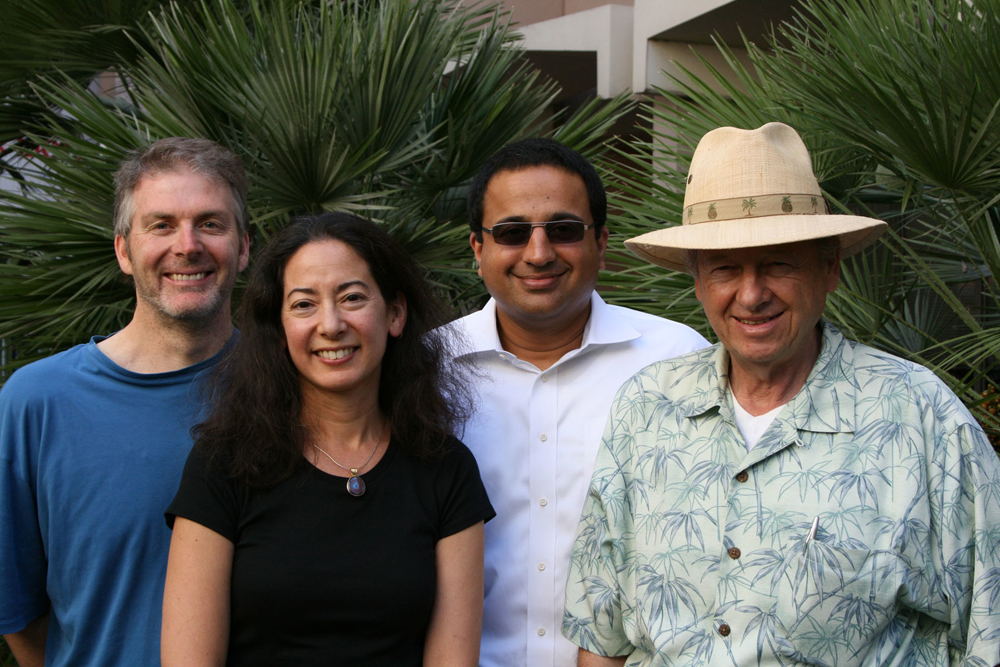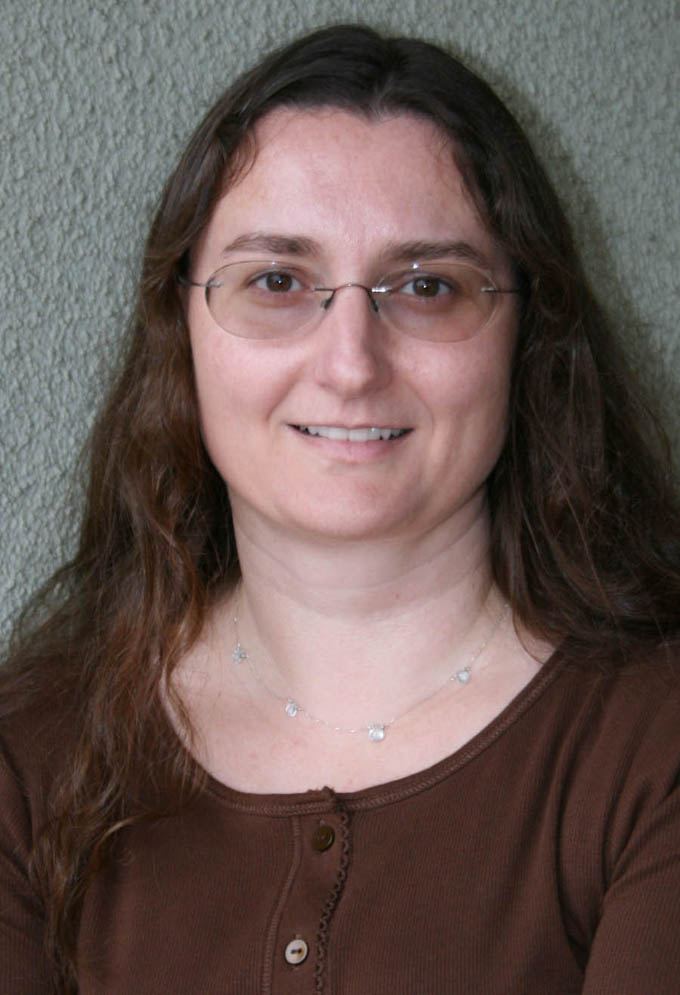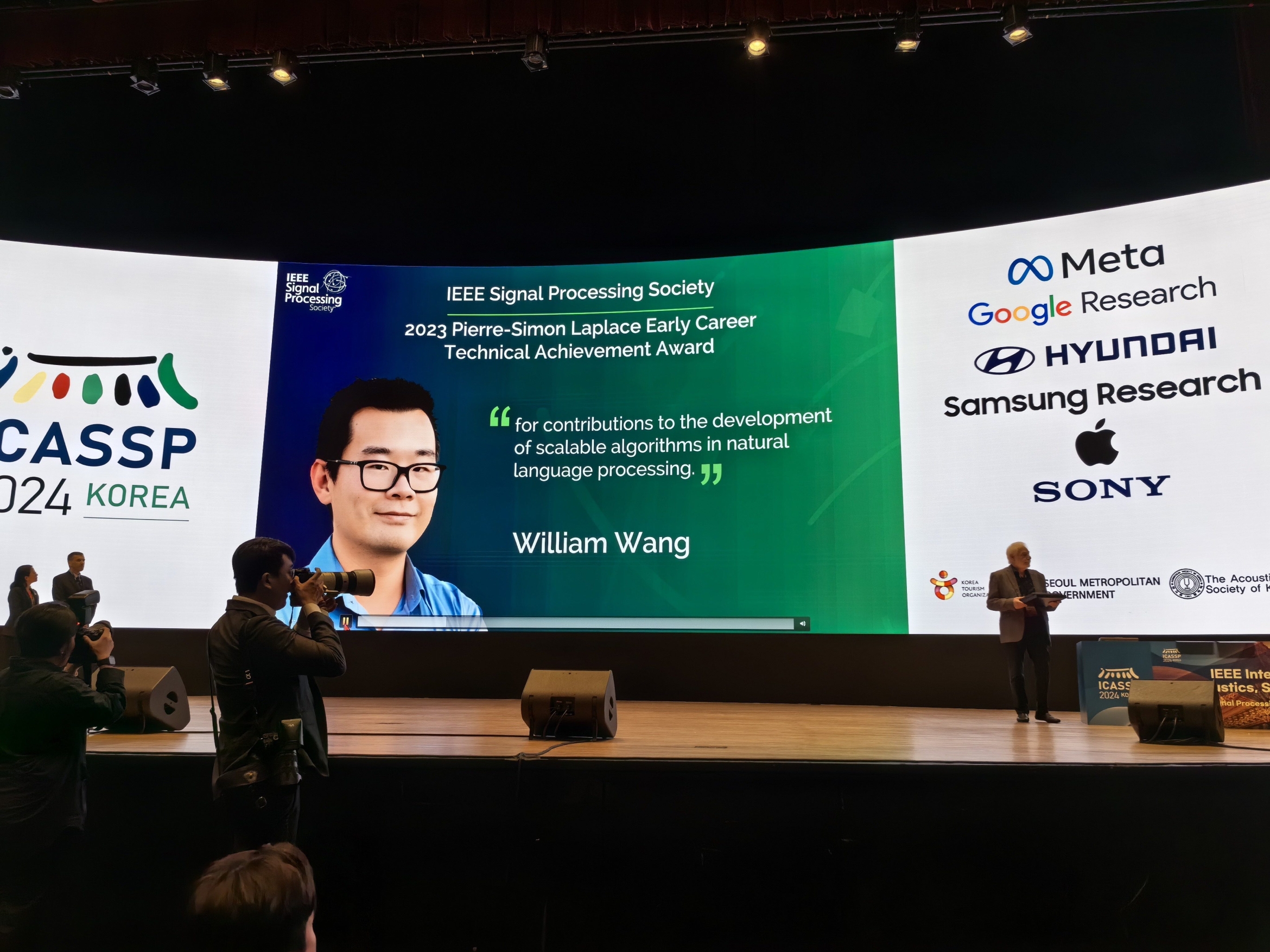

A new program funded by the National Science Foundation means UC Santa Barbara is now able to offer graduate students deep and broad experience in solving the energy challenges facing the country.
The Conversion of Energy through Molecular Platforms program, or ConvEne, will train a new generation of chemical and materials scientists and engineers to address a broad range of questions in energy conversion using an interdisciplinary and multi-department approach. These future Ph.D.s will acquire the technical skills, environmental awareness, business expertise, and teamwork approaches needed to address fundamental and applied issues in the generation and conversion of energy in efficient and environmentally sustainable ways.
Officially known as an Integrative Graduate Education and Research Traineeship (IGERT), the program is funded by a $3.1 million NSF grant over five years. UCSB will contribute an additional $750,000 in program support. That will provide 55 student-years of graduate fellowships, among other things, said Ram Seshadri, the principal investigator.
"We anticipate that the IGERT will be an important part of campus efforts focusing attention on research in energy conversion," Seshadri said.
Seshadri, whose expertise is in inorganic materials synthesis, has four co-principal investigators on the UCSB faculty. Craig Hawker will focus on organic materials synthesis. Dorothy Pak will head up education and outreach efforts. Susannah Scott will lead the surface science and catalysis group, and Fred Wudl will direct the organic photovoltaics efforts.
Nearly 20 researchers from a variety of departments and programs will be involved, including the Materials Research Laboratory; the Bren School of Environmental Science and Management; the California NanoSystems Institute; the Technology Management Program; the Materials Department; Chemistry and Biochemistry; and Chemical Engineering.
"We are excited to receive the ConvEne IGERT," said Gale Morrison, dean of UCSB's Graduate
Division. "We view this award as a testimony to the excellence in interdisciplinary research that is available on this campus. Opportunities for education and research to take place in settings where professors and graduate students work together on critical questions in sciences and engineering are an invaluable asset for graduate education. Our graduate students, as a result, are highly competitive on the international stage upon their graduation."
Vice Chancellor for Research Michael Witherell added: "To solve the grand energy challenges facing society we need talented scientists and engineers who are also able to evaluate the economic viability and environmental impact of new technologies. NSF is investing in UCSB's effort to train such people."
Seshadri said the impetus for the project came from both students and the interests of UCSB faculty.
"A lot of students' statements of purpose indicate they want to work on research related to energy," he said. And there are already strong energy-related programs at UCSB, including research on solid state lighting, the use of organic materials in solar energy conversion, and catalysis associated with fossil fuels and biomass.
Worldwide, quality of life is directly related to consumption of energy. The ability to tap into new (renewable) energy sources and to make more efficient use of existing (non-renewable) energy sources will be critical for maintaining quality of life in the United States, and enable developing countries to improve the health and well-being of their populations, Seshadri said.
"Another important part of the IGERT is to train students in interacting with the public and communicating with the public," Seshadri explained. Thus students will be involved in existing Family Science Night programs to teach Santa Barbara and Goleta Valley third-graders about important energy concepts.
"These programs benefit not just the kids but the families as well," Seshadri said.
This is the fifth IGERT that has been funded at UCSB since the National Science Foundation began the program in 1997. Previous UCSB programs have focused on advanced optical materials, computational science and engineering, economics and environmental science, and interactive digital media. Each IGERT is funded for five years, and more than 125 around the country have been initiated.
The program is intended to catalyze a cultural change in graduate education for students, faculty and institutions, by establishing innovative new models for graduate education and training in a fertile environment for collaborative research that transcends traditional disciplinary boundaries, according to the NSF.
UCSB is known in the academic research community for its highly interdisciplinary culture. More than 30 percent of its faculty members hold positions with two or more academic departments and research is frequently based on interdisciplinary partnerships.



